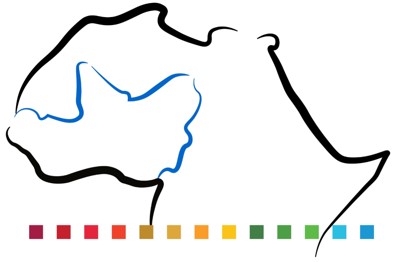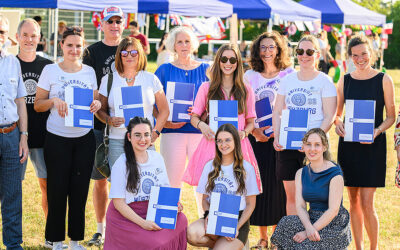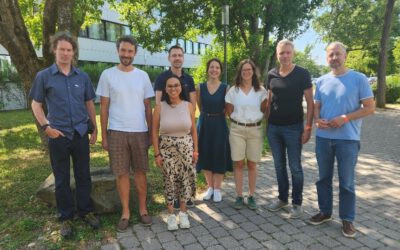Joint research on climate change and its impact on agrarian and ecological land use systems in West Africa and on the development and promotion of adaption strategies is continuing

The new research project WASCAL-DE-Coop at the Department of Remote Sensing has started in March 2019. For the next three years, it will focus on further pooling regional competence and expertise dedicated to the topics of climate change in West Africa and its impact on agrarian and ecological land use systems and on developing and promoting adaptation strategies.
WASCAL-DE-Coop will therefore build on networks and essential results gained in the first project phase (2010-2017). These are, inter alia, the formation and establishment of the WASCAL Competence Center (CoC) in Ouagadougou (Burkina Faso) as well as the WASCAL graduate schools. More than 180 PhD and Master students so far successfully completed their work on topics such as drought events and increasing rainfall variability, savanna land use systems and crop modelling, mitigation strategies and resilience, thereby contributing to improved regional understanding of climate change and food security.
The sustainable and future-proof continuation of these institutions is now in the focus of the WASCAL-DE-Coop project from 2019 to 2022. WASCAL-DE-Coop aims to strengthen existing cooperation with West African countries (www.wascal.org) and to expand the partner network to other countries in West Africa.
Major project activities at the Department of Remote Sensing at the Julius-Maximilians-Universität Würzburg (JMU) include:
- Coordination of the German contribution to the WASCAL graduate schools, support of WASCAL students in their research activities, and promotion of the professional exchange by involving German and West African scientists and experts in the WASCAL network, as well as strengthening of regional communication and collaboration
- Strengthening of the content knowledge and technical and methodological skills of junior scientists and experts through targeted teaching and training measures as well as workshops and excursions, particularly in the field of ground-based field data sampling, application-oriented remote sensing data analysis and spatial-temporal assessment and analysis of the variability of the agrarian-ecological use of savanna systems
- Deepening of knowledge and skills in the field of human-land interactions in the context of climate change and food security in West Africa by expanding the land use observation network and by aiming at satellite-based agricultural monitoring, in particular of rice areas, and model-based carbon sequestration in vegetation and the variability and dynamics of fire events in savanna ecosystems, and their effects on the fire-induced release of greenhouse gas emissions
- Support in science-based decision-making by deriving WASCAL services with regard to emissions and immissions of greenhouse gases with the further aim of developing and disseminating thematic policy briefs and strategy papers, and deriving further research potential in the region
- Sustainable utilization of derived datasets for West African scientists and experts into operational applications and systems by developing and implementing an information technology infrastructure for integrated data analysis by installing a data cube on the WASCAL high performance computer in the WASCAL CoC
All project activities are conducted in close collaboration with the WASCAL Headquarter in Accra (Ghana) and the WASCAL CoC in Ouagadougou (Burkina Faso) as well as with its German partners at the Chair of Physical Geography (Prof. Dr. Barbara Sponholz und Prof. Dr. Heiko Paeth) at the JMU.
The WASCAL-DE-Coop project is coordinated by the Department of Remote Sensing at the JMU. Since its implementation in 2010, the project WASCAL was funded by the German Federal Ministry of Education and Research (BMBF). Under the grant number 01LG1808A, its project successor WASCAL-DE-Coop is now again funded by BMBF through the project carrier at the DLR in Bonn.








